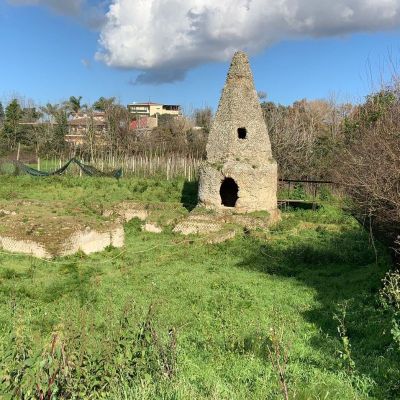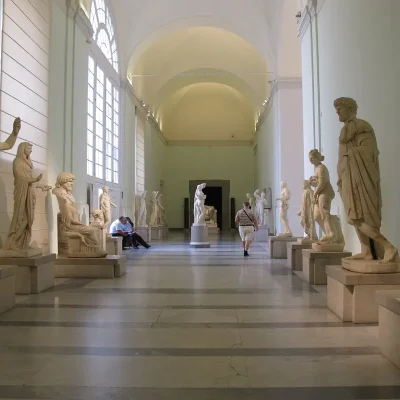Naples, a city where the aroma of freshly baked pizza intertwines with the sea breeze, offers an unparalleled culinary experience. But does a guided food tour elevate this experience, or does the city’s gastronomic wonders speak for themselves?
In this article, we explore the essence of Naples’ food culture and whether a local expert can truly enhance your gastronomic journey. From the bustling street food corners to the warm, inviting pizzerias, let’s delve into the heart of Naples’ culinary landscape.
Table of Contents
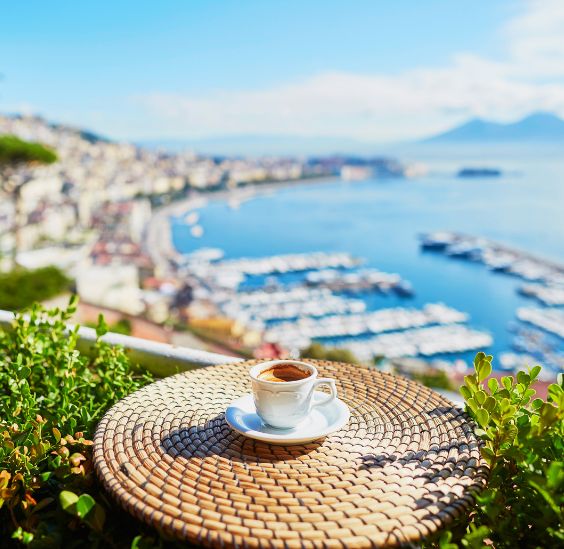
Why Food is Central to Neapolitan Culture
Naples, a vibrant city nestled along the Italian coastline, is a paradise for food enthusiasts. It’s a place where each street corner tells a story through its flavors, and every bite is a celebration of tradition.
The Historical and Social Significance of Neapolitan Cuisine
Naples’ culinary legacy is as rich as its history. Food here is more than sustenance; it’s a cultural beacon passed down through generations. The city’s love affair with food dates back centuries, influenced by various civilizations that left their mark on its cuisine. Each dish, whether it’s the world-renowned pizza or the soul-warming ragù, has a story rooted in Naples’ past.
The social fabric of Naples is intricately woven with its food culture. Festivals, family gatherings, and even daily life revolve around the communal enjoyment of food. This communal aspect is perhaps why dining in Naples feels like being part of a larger family, where every meal is a celebration.
The Art of Pizza Making and Beyond
Speaking of celebrations, none is more iconic than pizza in Naples. The birthplace of pizza, Naples, takes immense pride in this culinary masterpiece. The art of pizza making here is a rigorous tradition, governed by strict rules to preserve its authenticity. But Naples’ culinary canvas extends beyond pizza. Dishes like Spaghetti alle Vongole (spaghetti with clams) and Sfogliatella (a shell-shaped pastry) are testaments to the city’s diverse and rich culinary landscape.
The Local Perspective on Food
To Neapolitans, food is a language of its own. It’s a way to express love, hospitality, and even artistry. The locals’ deep connection with their culinary heritage is evident in how passionately they speak about their food. For them, it’s not just about the ingredients or recipes; it’s about preserving a legacy that defines their identity.
In a city where every meal is a tribute to history and culture, the significance of food in Naples is profound. As we explore the need for a local guide in navigating this culinary paradise, it’s essential to understand this deep-rooted love for food that makes Naples a gastronomic wonderland.

High-Quality Eateries: A Norm in Naples
In a city brimming with culinary wonders, does one need a local expert to truly savor its delights? This article delves into the heart of Naples’ food culture to answer this tantalizing question.
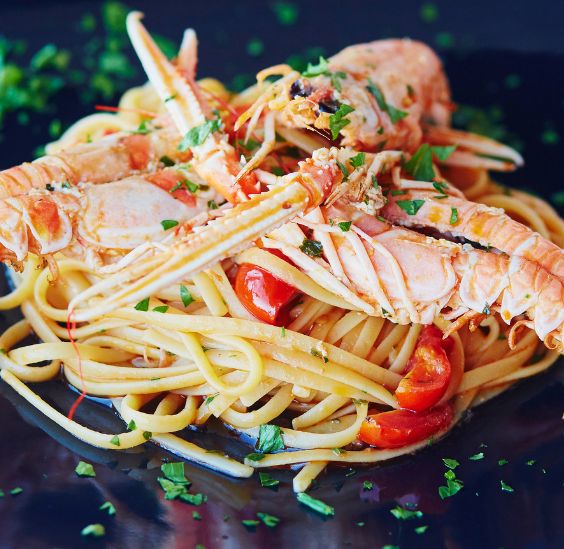
The Pinnacle of Pizza and Restaurant Excellence
In Naples, excellence in food is not the exception—it’s the rule. This city, steeped in culinary tradition, sets the bar high for its eateries. Pizzerias, in particular, are revered temples of gastronomy. Here, creating the perfect pizza is an art form, and the pizzaiolos are the celebrated artists. The same high standards apply to other eateries, whether it’s a humble trattoria or a chic ristorante. Each establishment, in its unique way, upholds the culinary prestige of Naples.
Examples of culinary excellence are scattered throughout the city. From the historic Pizzeria da Michele, known for its traditional Margherita, to innovative restaurants that fuse classic Neapolitan flavors with modern techniques, the range is astounding. It’s this unwavering commitment to quality that makes dining in Naples an unforgettable experience.
Can a Guide Really Make a Difference?
Given the ubiquity of top-notch eateries, one might wonder about the role of a food tour guide. Can a local expert really enhance what is already an exceptional dining scene? The answer isn’t straightforward. On one hand, a knowledgeable guide can offer insights into the history and traditions behind each dish, potentially enriching the dining experience. They might lead you to hidden gems that aren’t on the typical tourist path, offering a taste of authenticity that goes beyond the menu.
On the other hand, the argument stands that Naples’ food scene is so inherently rich and diverse that exploration without a guide could be equally, if not more, rewarding. The joy of discovering a quaint pizzeria tucked away in a narrow alley or stumbling upon a bustling street food stall is a quintessential part of the Neapolitan experience.
The Autonomy in Culinary Exploration
There’s a certain charm in wandering through the streets of Naples, guided only by the aromas and the lively chatter of locals. For many visitors, this unscripted exploration is the essence of travel. Finding your own favorite spot or the best slice of pizza becomes a personal adventure, a story to cherish. This autonomy in exploring Naples’ culinary landscape allows for spontaneous discoveries and genuine interactions, which are often the highlights of any travel experience.
In Naples, whether you’re dining in a renowned restaurant or a lesser-known eatery, the quality of the food rarely disappoints. The question of whether to enlist the help of a local guide depends on your preference for structured insights or spontaneous exploration. Either way, the gastronomic delights of Naples await to enchant your palate.
PRIVATE The 10 Tastings Food Tour of Naples: Limoncello Included
The Role of Guides and Restaurant Affiliations
The Business Behind Guided Food Tours
In the world of guided food tours, the connection between guides and certain eateries can be a double-edged sword. On one side, guides develop relationships with restaurants and street food vendors that can grant tourists access to exclusive experiences, from kitchen tours to meetings with chefs. However, there’s a commercial aspect to consider. Some guides may have agreements with specific restaurants, where they receive a commission for bringing in tourists. This practice raises questions about the impartiality of the recommendations provided during the tour.
Commission vs. Quality: A Delicate Balance
The potential conflict of interest between a guide’s commission and the quality of the food experience is a delicate topic. In an ideal scenario, a guide’s recommendations should be based solely on the quality and authenticity of the food, not on personal gain. Yet, the reality can be more complex. While many guides prioritize quality and strive to showcase the best of Naples’ cuisine, there are instances where commercial agreements might influence their choices.
This doesn’t necessarily mean that the quality of the food is compromised. Many partnered establishments maintain high standards to attract and satisfy tourists. However, it does introduce a variable that can affect the authenticity of the experience. Tourists may find themselves questioning whether they are being led to a place for its culinary merit or for the guide’s benefit.
Alternatives to Guided Tours
For those wary of potential biases in guided tours, exploring Naples’ food scene independently is a viable option. The city’s reputation for culinary excellence makes it relatively easy to find quality eateries on your own. Online review platforms have become increasingly popular in aiding this independent exploration. Websites like TripAdvisor or Yelp offer a multitude of reviews and ratings, helping tourists make informed decisions about where to eat.
However, it’s important to approach online reviews with a critical eye. Just as with guided tours, not all reviews are created equal. Some may be influenced by personal tastes, singular experiences, or even fake reviews. Balancing these reviews with personal judgment and spontaneous choices can lead to a fulfilling culinary adventure in Naples.
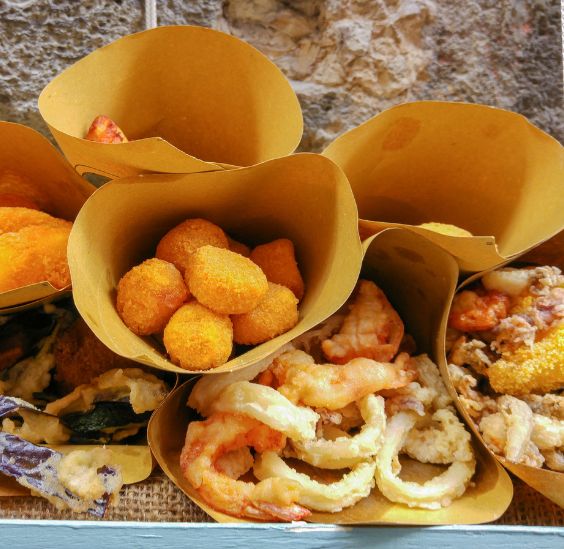
The Shift to Online Reviews in Food Tourism

From Personal Guides to Digital Platforms
The digital age has revolutionized the way travelers explore culinary landscapes. In Naples, a city renowned for its rich food culture, this shift is particularly evident. Where once the knowledge of a local guide was indispensable, now online review platforms like TripAdvisor, Yelp, and Google Reviews offer a plethora of insights and opinions. These platforms have democratized food tourism, allowing travelers to access a wide array of recommendations with just a few clicks.
This transition from personal guides to digital platforms has its advantages. Online reviews provide a broad spectrum of opinions, covering a diverse range of eateries from high-end restaurants to street food stalls. They also offer the convenience of planning your culinary itinerary from anywhere in the world, giving you a sense of control and preparation.
The Reliability and Influence of Online Reviews
While online reviews are undoubtedly useful, their reliability can vary. The subjective nature of taste and experience means that what delights one person might disappoint another. Additionally, the authenticity of reviews can sometimes be questionable, with instances of fake reviews or biased opinions.
Despite these concerns, the influence of online reviews on tourists’ dining choices in Naples is undeniable. Many travelers rely heavily on these platforms to guide their culinary adventures, often using them as the primary source of information for choosing where to eat.
Personal Experience vs. Online Guidance
There’s a unique charm in discovering a city’s food culture through personal experience, unfiltered by the opinions of others. While online reviews can guide you to popular spots, they can’t replicate the thrill of stumbling upon a hidden gem on your own. This spontaneous exploration often leads to more memorable and authentic experiences.
Moreover, local guides offer insights that go beyond what’s available online. They provide context, share stories, and sometimes even introduce you to the people behind the food, adding depth to the dining experience. The choice between relying on online guidance and exploring independently or with a guide depends on your travel style. Some prefer the reassurance of highly-rated places, while others enjoy the unpredictability of uncharted culinary adventures.
The Charm of Unplanned Culinary Adventures
The Thrill of Serendipitous Discoveries
Naples, a city alive with sensory delights, offers a special kind of magic to those who wander its streets without a set plan. The thrill of serendipitous discoveries in its culinary scene is unmatched. Picture turning a corner to find a bustling market filled with fresh, local produce, or following the tantalizing aroma of baking bread to a small bakery that’s been a local secret for generations. These spontaneous finds often lead to the most authentic and memorable dining experiences.
Stories abound of travelers who, while meandering through the narrow alleys of Naples, have stumbled upon quaint trattorias where they enjoyed some of the best meals of their lives. These moments of unexpected joy are the essence of travel, bringing a sense of adventure and authenticity that planned tours can sometimes miss.
Embracing the Unknown: A Recipe for Adventure
Embracing the unknown in Naples is like opening a treasure chest of culinary delights. Without preconceived notions or expectations shaped by reviews and recommendations, every meal becomes an opportunity for discovery. This approach to exploring Naples’ food scene allows you to connect more deeply with the city, engaging with locals and learning through firsthand experiences.
The spontaneous decision to enter a random pizzeria or street food vendor can lead to surprising and delightful encounters. It’s in these unscripted moments that you might find the true spirit of Neapolitan cuisine, served with a side of warm, Italian hospitality.
Balancing Guidance and Spontaneity
While the allure of unplanned adventures is undeniable, a balance between guidance and spontaneity can often provide the best of both worlds. For those new to Naples or Italian cuisine, a guided tour at the beginning of your trip can offer valuable insights and tips. Armed with this knowledge, you can then confidently explore on your own, applying what you’ve learned to your spontaneous discoveries.
This balanced approach allows you to appreciate the expertise and insider knowledge of a local guide, while still leaving room for personal exploration and unexpected delights. In the end, whether guided or unguided, the streets of Naples promise a culinary journey that’s as rich and varied as the city itself.
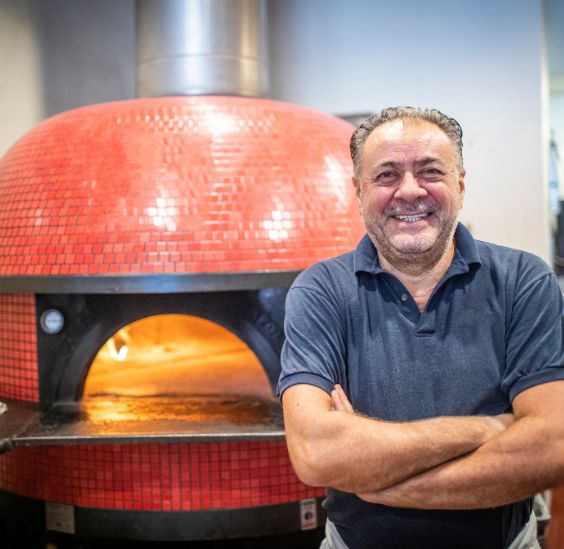
The Irresistible Allure of Neapolitan Delicacies

A Gastronomic Heaven, Guide or No Guide
Regardless of the path you choose—guided or unguided—Naples stands as a gastronomic heaven, enchanting everyone who visits. The city’s culinary repertoire, from its world-famous pizzas to lesser-known local specialties, offers a diverse palette of flavors that cater to all tastes. Each dish is a testament to Naples’ rich cultural heritage and culinary expertise.
The streets of Naples are a mosaic of enticing aromas and flavors. The traditional sfogliatella, with its flaky crust and sweet ricotta filling, the hearty ragù that simmers for hours, and the iconic Neapolitan pizza, with its perfect balance of crispy crust and fresh toppings, are just a few examples of the culinary marvels this city offers. Guide or no guide, the quality and diversity of Naples’ food scene ensure that your culinary experience will be nothing short of extraordinary.
The Unforgettable Taste of Naples
The flavors of Naples linger long after the trip is over. Visitors often recount tales of their culinary adventures in the city, highlighting not just the food but the entire sensory experience. Dining in Naples is as much about the atmosphere, the people, and the city’s vibrant energy as it is about the food itself.
Testimonials from visitors frequently mention more than just the dishes—they talk about the lively conversations with locals, the animated chefs, and the overall ambiance that makes dining in Naples unique. It’s this combination of exceptional food and a rich cultural setting that leaves a lasting impression.

Conclusion: To Guide or Not to Guide?
The decision to explore Naples’ food scene with or without a local guide boils down to personal preference. A guide can offer valuable insights, historical context, and direct you to hidden gems. However, the city’s culinary landscape is so rich and accessible that venturing out on your own can be equally rewarding. Ultimately, whether you choose a structured food tour or an impromptu culinary adventure, Naples promises a delightful and unforgettable experience. Its streets and eateries, bustling with life and flavor, welcome all who seek to discover the true essence of Neapolitan cuisine.



